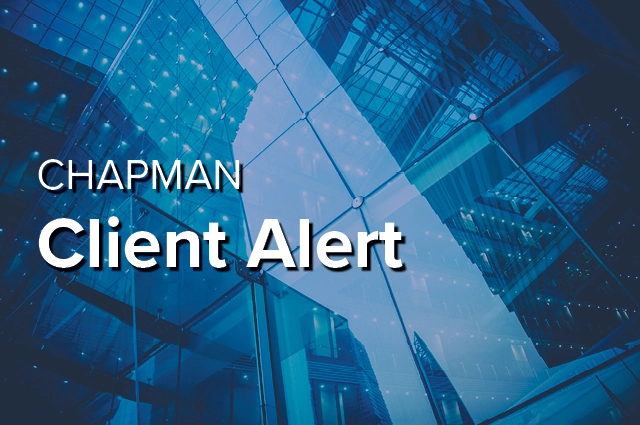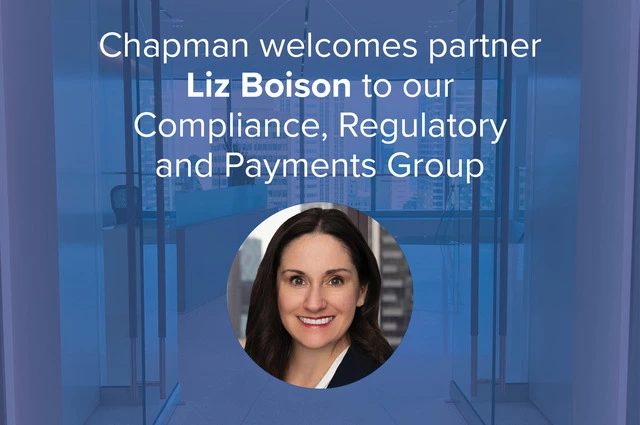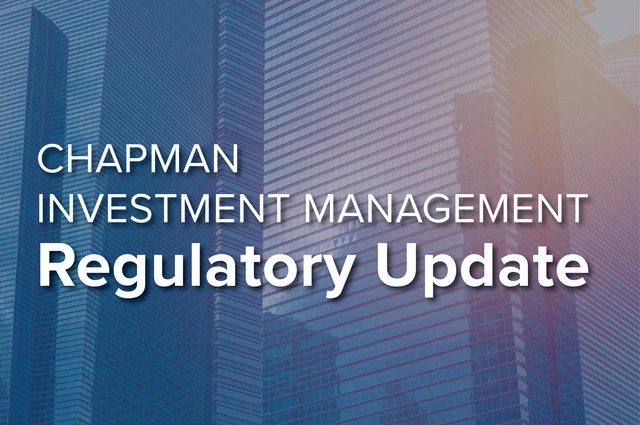- Topic: Fiduciary Rule
17 matches.
As discussed in our previous Client Alerts on December 9 and December 13, on December 3, 2024, the U.S. District Court for the Eastern District of Texas (the “District Court”) issued a nationwide preliminary injunction that temporarily blocks enforcement of the Corporate Transparency Act (“CTA”) and the U.S. Department of the Treasury's Financial Crimes Enforcement Network (“FinCEN”) related beneficial ownership information (“BOI”) reporting rules.
On April 23, 2024, the Department of Labor (“DOL”) released its final investment advice fiduciary rule, titled the Retirement Security Rule (the “Final Rule”), which re-defines who is a fiduciary on account of providing investment advice to workplace retirement plans and individual retirement accounts (“IRAs”). In addition, the DOL released several amended DOL prohibited transaction exemptions that, together with the Final Rule, are “intended to protect the interests of retirement investors by requiring persons who are defined in the Final Rule as investment advice fiduciaries to adhere to stringent conduct standards and mitigate their conflicts of interest.” The Final Rule and the amended exemptions finalize the proposed investment advice fiduciary rule and proposed amendments to the prohibited transaction exemptions, which the DOL issued on October 31, 2023. The Final Rule narrows certain provisions in the proposed rule that some commentators and industry groups argued were overly broad. The Final Rule and the amended prohibited transaction exemptions will become effective on September 23, 2024, except that certain provisions in the amended exemptions will not be phased in until one year after such effective date.
The Department of Labor proposed a new investment advice fiduciary rule, which generally reinstates the DOL’s longstanding investment advice fiduciary test and provides a new prohibited transaction exemption for such fiduciaries.
The beginning of each year provides an opportunity for investment advisers to review compliance and regulatory matters, including issues related to private investment funds and commodity pools.
The Department of Labor published its proposal to delay for 18‑months the more onerous provisions of the exemptions that were issued in connection with the DOL’s fiduciary rule. The exemptions were supposed to be fully effective January 1, 2018. Instead, the DOL has proposed that they become fully effective July 1, 2019.
The Department of Labor recently issued another set of FAQs, focusing on advisors to 401(k) plans. The FAQs generally address two issues.
In a court filing on August 9, the Department of Labor notified the court that it recently submitted proposed amendments to the three exemptions to its fiduciary rule to the Office of Management and Budget.
The Securities and Exchange Commission announced that it is requesting comments from retail investors and other interested parties on the standards of conduct applicable for broker-dealers and investment advisers.
Labor Secretary Alexander Acosta confirmed in an Op-Ed in the Wall Street Journal that the Department of Labor fiduciary rule will become applicable on June 9. Along with the Op-Ed, the DOL issued new Conflict of Interest FAQs related to the June 9, 2017 to January 1, 2018 transition period and Field Assistance Bulletin No. 2017-2.
Yesterday the Department of Labor released the final rule delaying the applicability of the DOL fiduciary rule and the related prohibited transaction exemptions to June 9, 2017. The rule was originally set to become applicable on April 10, 2017.
The Department of Labor announced a proposed 60-day delay of the applicability date of the DOL fiduciary rule and related exemptions. The DOL has allowed a 15-day comment period providing all interested parties an opportunity to comment on the proposed delay.
President Trump issued a memorandum directing the Department of Labor to conduct an analysis of the fiduciary rule’s potential impact. Depending on the results of its examination, the memorandum instructs the DOL to publish for notice and comment a proposed rule to rescind or revise the rule.
The Department of Labor released on January 13 two sets of frequently asked questions to provide additional guidance on its new fiduciary rule. One set of FAQs is directed at consumers to better help them understand the Rule. The other set of FAQs is directed at financial service providers to address the regulation defining “investment advice.”
The staff of the Securities and Exchange Commission’s Division of Investment Management has released guidance focused on disclosure issues and certain procedural requirements associated with mutual funds implementing intermediary‑specific variations to sales loads and adding new share classes.
On October 27, the Department of Labor issued its first wave of FAQs to address certain questions that have arisen with respect to the DOL’s previously issued fiduciary rule. Generally, the Rule broadly defines who is a fiduciary under the Employee Retirement Income Security Act and the Internal Revenue Code.
This alert addresses several frequently asked questions related to sales of unit investment trusts registered under the Investment Company Act of 1940 by those persons deemed fiduciaries under the U.S. Department of Labor's recently released fiduciary rule.
Today the U.S. Department of Labor released its highly anticipated final rule to define the term “fiduciary” and address conflicts of interest in providing investment advice to retirement accounts.









